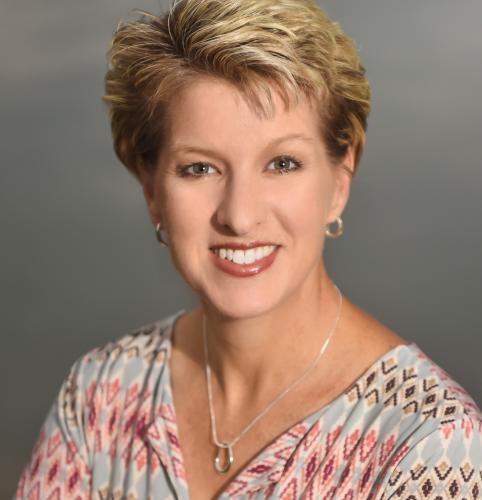For her whole life, Peggy has had the pleasure of confusing her family and friends with the appearance of her identical twin, Penny. Penny and Peggy grew up sharing friends, a car, a room, and many memories. Peggy said they did everything together for the first 18 years of their life, and it was because of this she learned to be a team player, consider other’s perspectives, and work to compromise when at all possible. That, and the general environment of “Nebraska Nice” she was raised in has helped form her into the friendly person she is today. To add to her warm and fuzzy personality, Peggy loves to bake, spend time with her family, and take her dog, Percy, for long walks.
Peggy Reisher’s Experience with Traumatic Brain Injury (TBI)
Peggy attained her master’s in social work in Nebraska but began her work with individuals with brain injury while living in Indianapolis, IN after graduate school. When Peggy moved back to NE, Madonna Rehabilitation Hospital hired her to serve as the social worker in their brain injury unit. There, she spent the next 14 years helping patients and their families find support and services as they prepared to discharge from the rehabilitation unit.
In 2009, the Nebraska Dept. of Education used HRSA funds to support the development of a new non-profit which became BIA-NE, an organization aimed at helping individuals with brain injuries rebuild their lives, restore purposeful living, and rebuild hope and optimism beyond the hospital walls. Initially, Peggy was the program director for BIA-NE and took over as the executive director in 2013.
For the first eleven years, BIA-NE only had funding for two to three full-time staff and a contract worker. A milestone was met in 2019 when, after Peggy and fellow advocates had been lobbying for ten years, the “Brain Injury Trust Fund” legislation was passed, providing financing for TBI support, and expanding the staff to eight. This dramatically improved the support that BIA-NE could provide for the TBI community.
In 2019 Peggy was asked to be on the board of the United States Brain Injury Alliance (USBIA), only to then end up chairing the board.
Today, Peggy strives to broaden the support given to individuals with brain injury across the state. She does this by building systems capacity. Areas of focus for Peggy and her team are those individuals who are at higher-risk of having a brain injury. That includes justice-involved individuals, victims of domestic violence, veterans, and the aging population. Peggy and her team offer brain injury training to community-based programs, encouraging programs to screen their clients for brain injury. Once they identify those who screen positive, they ask those programs to refer those individuals to their brain injury resource facilitators which they have across the state.
What does Peggy Reisher think of the quality, usefulness, and user-friendliness of the MSKTC resources?
The MSKTC resources fill the void that has existed for those looking for the best knowledge of how to deal with the symptoms of their TBI. Small organizations don’t have the means to create the content needed to best educate people within the TBI community, but thanks to MSKTC, they don’t need to. As Peggy’s organizations track information in their database, the consistent issue raised with people with TBI is a struggle to find the information they need. Fortunately, Peggy finds that she is regularly able to find the resources needed through the MSKTC website. The factsheets are such a powerful tool, and the continued translation of resources into Spanish is invaluable. Even the info-comics serve a huge role for those users who are not the strongest readers.
Why does Peggy Reisher want to be an MSKTC ambassador?
Peggy feels like she has already been playing the role of an ambassador, with how often she proselytizes MSKTC resources. Signing up with MSKTC and making it official only made sense.
What has Peggy Reisher done as an MSKTC ambassador?
In her efforts to improve the quality of knowledge, Peggy always follows up her presentation with linking to the relevant MSKTC resources. Considering she performs anywhere from 30-50 presentations annually, there are plenty of opportunities where she can platform MSKTC. In her communities, Peggy notes regular occurrences of people continuing to share MSKTC resources after she has introduced them to the site. Within BIA-NE her staff regularly share relevant resources with clients and the community at large, and Peggy will even share links via email or Zoom when they are relevant to the recipient’s needs.
